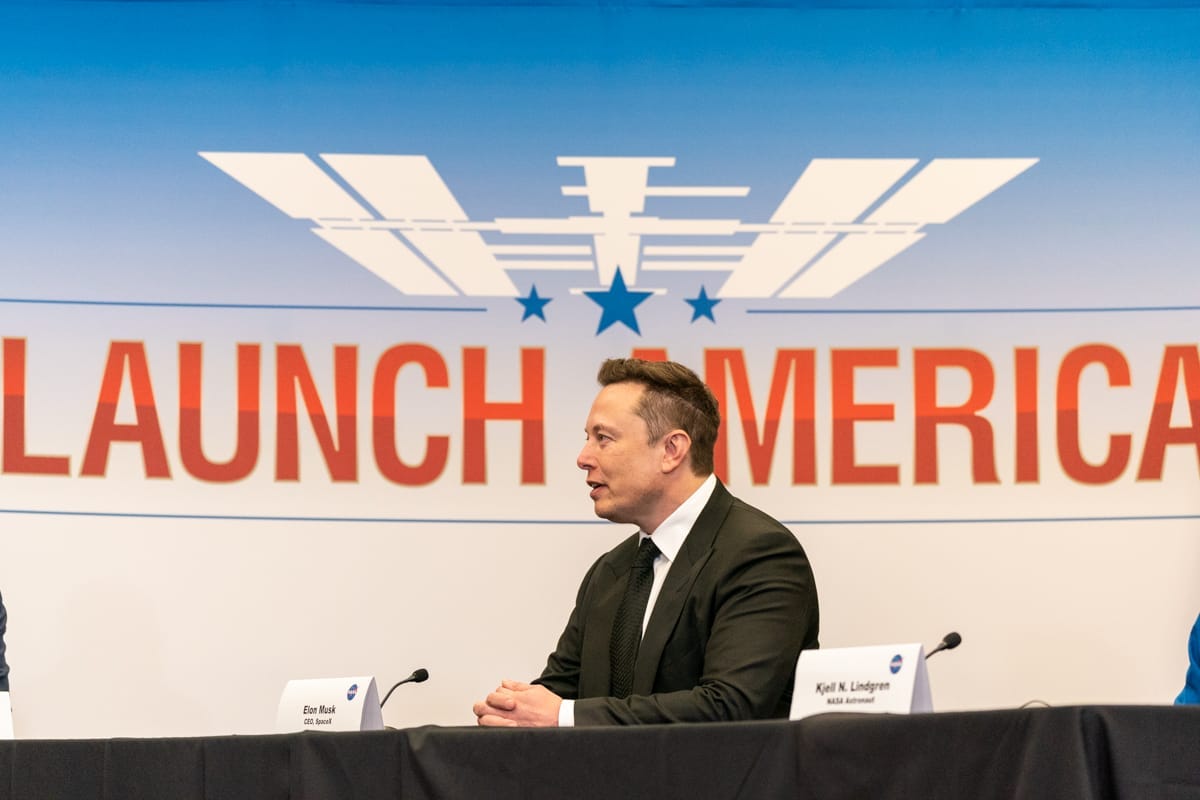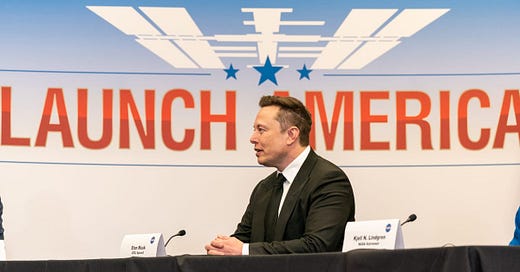Roundup: Elon Musk’s Russian connection
Read to the end for another AI CEO making ridiculous energy demands

With everything Elon Musk has been up to in recent weeks, it can feel hard to decide what to comment on. He’s likely breaking election finance laws in the United States, it’s now confirmed he lied to immigration officials and worked illegally in the country, and he continues pushing conspiratorial, far-right views. But the new Wall Street Journal report that he’s been in regular contact with Russian president Vladimir Putin and other Kremlin officials since late 2022 could have significant consequences.
Musk’s interest in Russia is nothing new. All the way back in 2002 when he was trying to get SpaceX off the ground, he made a trip to the country to try to buy rockets, but came away unsuccessful. I think it’s fair to say there have always been questions about what happened on that trip, especially hearing stories of him passing out at a vodka-heavy lunch.
In the years since, Musk has cultivated a fanatic following in Russia, as in many other countries. He’s acknowledged speaking to Putin in 2021, but denied reports he told Eurasia Group’s Ian Bremmer he’d talked to him in the fall of 2022 about Ukraine. It was around that time that Musk’s support for Ukraine started to turn, and he began restricting the country’s Starlink access. Not long after, reports of Russian soldiers using Starlink began to emerge and last month Ukrainians reportedly found Starlink hardware on a downed Russian drone.
Given how the United States has named Putin one of its most significant global enemies, it’s hard to see how a report of regular conversations between Musk and Putin can’t force action from the US government. Since 2020, when SpaceX began carrying US astronauts from US soil once again, NASA and the US military have become deeply dependent on Musk’s company. Concerns about the degree of that dependence started to become more public after Musk’s efforts to restrict Ukraine’s access to Starlink, but it’s hard to see how regular communication with Putin by someone the US depends on so deeply and who has high-level security clearance won’t set off red flags.
On Friday, NASA Administrator Bill Nelson said there should be an investigation into the report, but truly sidelining Musk would take drastic action. Blue Origin’s New Glenn rockets are far behind schedule and have hit a number of recent setbacks, while the United Launch Alliance’s Vulcan Centaur rocket has also suffered years of delays and isn’t reusable like SpaceX’s rockets, making them more expensive. Boeing, a member of the ULA, is having such trouble in its space division it’s considering selling it off.
For the US government to truly distance itself from Musk, it would likely need to force him out of SpaceX or have the government take control of it — two options it’s almost impossible to imagine feckless Democratic leaders taking. You can already see the extreme right seizing on any such action as yet another reason their fascist plans must be realized. If Trump returns to power, Musk’s politics and conversations with Putin won’t be an issue.
The United States hitched its cart to Elon Musk. Now it’s dealing with the consequences.
This week in the roundup, plenty of important reads on the political antics of tech billionaires as the US election gets closer (and a great essay by Alan Moore). Plus, the usual labor updates and other news you might have missed from the past week.
On my end, a lot to point you to this week: I was on Ed Zitron’s Better Offline podcast and did a livestream with Emily M. Bender and Alex Hanna over on Mystery AI Hype Theater 3000. You can read an excerpt of the Portuguese translation of my book Road to Nowhere in Nexo (and grab a copy from Ubu Editora). I also spoke with Fundacja Panoptykon in Poland and Klassekampen in Norway, and was on the Cybernormer podcast in Denmark!
Over on Tech Won’t Save Us, I spoke to Ulises Mejias and Nick Couldry about their new book Data Grab and the threat of what they describe as “data colonialism.” The third episode of my special series Data Vampires also came out Monday, focusing on the climate impacts and wider harms of generative AI.
Have a great week!
— Paris
Keep reading with a 7-day free trial
Subscribe to Disconnect to keep reading this post and get 7 days of free access to the full post archives.




